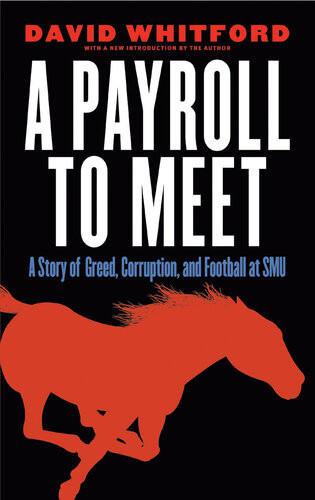

Most ebook files are in PDF format, so you can easily read them using various software such as Foxit Reader or directly on the Google Chrome browser.
Some ebook files are released by publishers in other formats such as .awz, .mobi, .epub, .fb2, etc. You may need to install specific software to read these formats on mobile/PC, such as Calibre.
Please read the tutorial at this link: https://ebookbell.com/faq
We offer FREE conversion to the popular formats you request; however, this may take some time. Therefore, right after payment, please email us, and we will try to provide the service as quickly as possible.
For some exceptional file formats or broken links (if any), please refrain from opening any disputes. Instead, email us first, and we will try to assist within a maximum of 6 hours.
EbookBell Team

0.0
0 reviewsSouthern Methodist University in Dallas is one of numerous prestigious universities in Texas. The school's football team was the pride of the university and the city. Before the late 1970s, however, the relatively small school had trouble recruiting and struggled to keep up with the big-time football universities that were often more than double its size. Under pressure to compete, the SMU football program engaged in ethics, rules, and recruiting violations for years. When the corruption came to light, the NCAA handed out its most serious punishment in the history of college sports—the "death penalty"—which cancelled the team's entire 1987 schedule.
In A Payroll to Meet, author David Whitford details the Mustangs' descent into corruption and the fallout when it was discovered. Most egregiously, the football program ran a huge slush fund that was used to pay players from the mid-1970s through 1986. Bill Clements, chairman of the SMU board and soon to be reelected governor of Texas, knew all about the slush fund before the NCAA did. He opted, however, to phase out the payments rather than stop them immediately, for fear that angry players might go public and create still more problems for SMU. Clements and the athletic director Bob Hitch decided that the football program had "a payroll to meet."